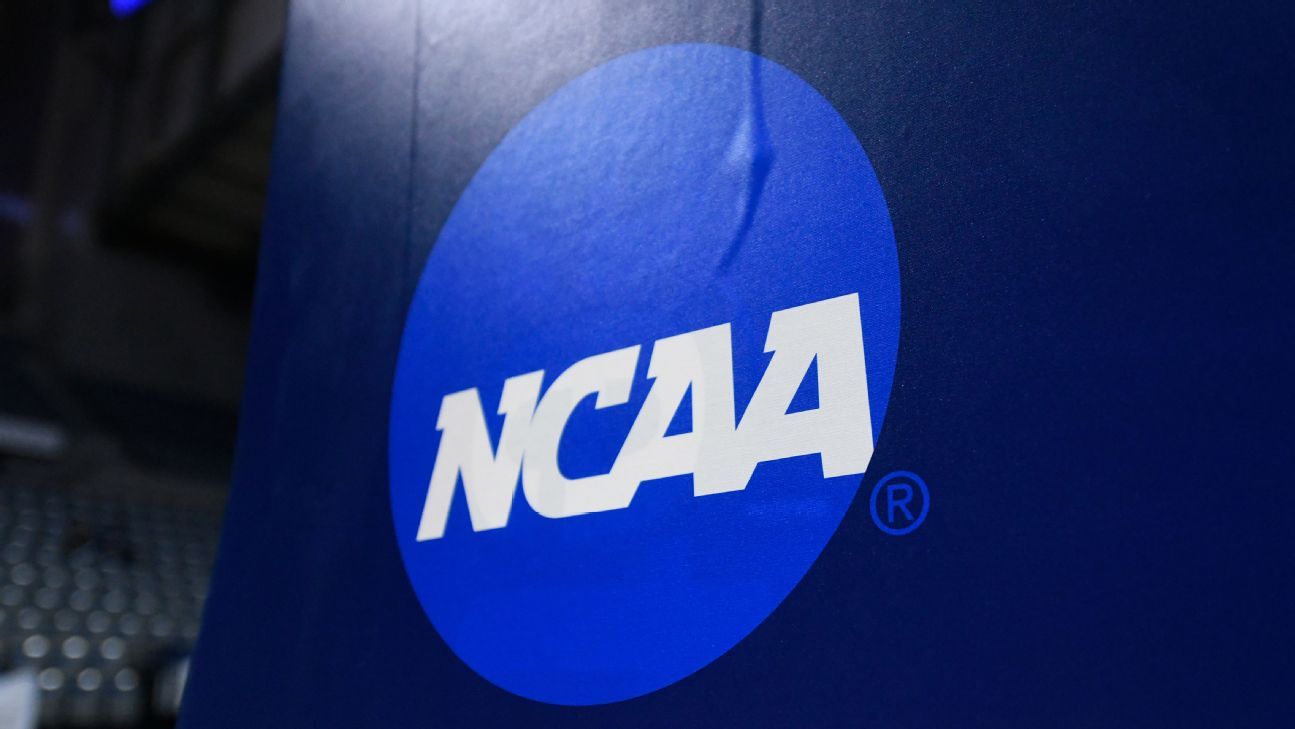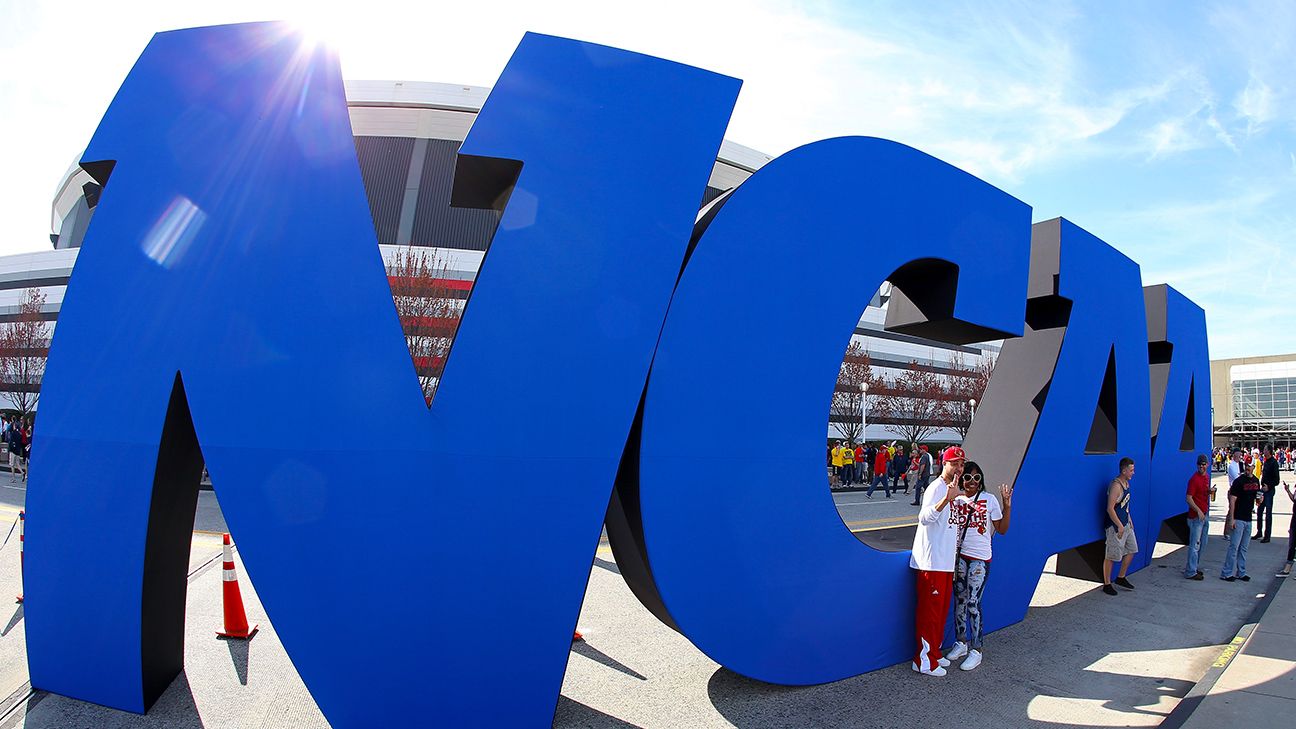The NCAA and its five power conferences have agreed to allow schools to directly pay players for the first time in the 100-plus-year history of college sports.
The NCAA and its leagues are planning to alert plaintiffs' attorneys Thursday that they are prepared to move forward with a multibillion-dollar agreement to settle three pending federal antitrust cases, sources told ESPN. The NCAA will pay more than $2.7 billion in damages over 10 years to past and current athletes, according to sources. Sources said the parties also have agreed to a revenue-sharing plan allowing each school to share up to roughly $20 million per year with its athletes.
All Division I athletes dating back to 2016 are eligible to receive a share as part of the settlement class. In exchange, athletes cannot sue the NCAA for other potential antitrust violations and drop their complaints in three open cases -- House v. NCAA, Hubbard v. NCAA and Carter v. NCAA.
The settlement terms must be approved by Judge Claudia Wilken, who is presiding over all three cases. That process is expected to take several months, and sources said schools likely will begin sharing revenue in fall 2025. The NCAA's Board of Governors and leaders from the ACC, Big Ten, Big 12, SEC and Pac-12 voted to accept the general terms laid out in a 13-page document.
- the agreement does not resolve all the pending legal issues that have revolutionized the business of college sports and destabilized the multi-billion-dollar industry. Athletes and their advocates are still fighting to become employees or find other ways to collectively bargain in the future, which could reshape a revenue share agreement. This week's agreement, though, potentially decreases the NCAA's exposure to antirust litigation, which has been the most powerful tool in pushing schools to provide more for athletes.
"We recognize that we're just on the front end of this entire process," said Illinois athletic director Josh Whitman, who recently took over as the chair of the NCAA's Division I Council. "There's a lot to be sorted out as we try to really wrap our arms around some of the details that we're putting in place now."
Steve Berman, co-lead counsel for the athletes alongside veteran antirust attorney Jeffrey Kessler, said this week's announcement feels like a "finish line," but the cases won't be officially closed for several more months. Other antitrust attorneys tell ESPN that the deal could unravel if athletes opt out to join a separate and pending antitrust case or if Judge Wilken rejects the settlement terms. Berman said he remains confident that their deal will hold.
By the end of this week, the parties plan to alert Wilken -- who has presided over the most impactful antitrust cases of the past decade -- that they will submit final details to the court in the next 30 days.
If Wilken approves those details in a preliminary hearing, which is likely to occur in July, Berman said the plaintiff lawyers will publish a website and distribute a notice to all players explaining the potential benefits of remaining in the class and options for objecting or opting out of the class.
Players usually have a window of more than 30 days to raise objections or opt out of the settlement. If they opt out, players give up any money they would receive from the damages but retain the right to sue the NCAA and its schools in the future for antitrust violations.
There is at least one other pending antitrust lawsuit not covered by the House case settlement. Former Colorado football player Alex Fontenot is suing the NCAA for restricting how it shares TV rights revenue with players. The NCAA and the attorneys in the House case argued that Fontenot's claims should be consolidated with their lawsuits because they are very similar. However, a judge in Colorado denied that request Thursday morning.
Garrett Broshuis, Fonenot's attorney (who helped negotiate a major settlement on behalf of minor league baseball players in recent years), told ESPN that they are monitoring the House case settlement closely. They might consider opting out once they see the terms of the deal, which would make the peace the NCAA and its schools hope they are buying very short-lived.
Berman said that he believes the judge in Fontenot's case could change her opinion once the terms of their settlement are approved. He also said he thinks it's unlikely that many athletes will pass up the potential settlement money and take on the risk of joining Fontenot's case.
"Some athletes could be getting tens of thousands or over a hundred thousand [dollars] in the settlement," Berman said. "They'd have to choose to see if they could better on their own."
Berman told ESPN that a series of formulas devised by a sports economist will be used to decide how to split the $2.7 billion in damages amongst more than 10,000 former and current athletes. He said some money will be split evenly among all members, but other parts will be allocated based on the athlete's market value. Metrics such as career snap count or a player's star rating in recruiting may determine their payout, he said.
Gathering data to plug into that formula could be a complicated process, and Berman said he's hoping schools will provide "granular data" rather than requiring players to submit claims by themselves.
The settlement terms provide a 10-year window to fully pay out the $2.7 billion. Berman said each player in the class will get an annual check worth 10% of the money they are owed. He said Wilken will approve how much money will go toward attorneys' fees.
Several athletic directors told ESPN that they are hopeful the settlement lays the groundwork for a system where success on the field is less dependent on which schools can spend the most money. Sources said some of the challenges to solve include figuring out how to distribute the revenue share money in a way that meets market needs while complying with Title IX laws and if schools can regain control of the marketplace for college athletes, which has been outsourced during the last three years to a group of booster collectives, who pay athletes via name, image and likeness endorsement deals.
Berman said the settlement includes a "mechanism" that he believes will make it easier for schools to rein in the marketplace for third-party NIL deals. He declined to provide any further details. Several athletic directors told ESPN this week they were optimistic but uncertain about whether the settlement would give them enough legal room to regain control.
"I think we have a chance right now to really reshape the model in the most meaningful way of any of our lifetimes, and maybe the most meaningful way there has ever been," said Whitman, the new Division 1 Council chair.
When asked if he thought the settlement provided the tools the NCAA and its schools needed to take control back of the market for college athletes and add stability to the new world for college sports, Whitman said: "We'll find out."




